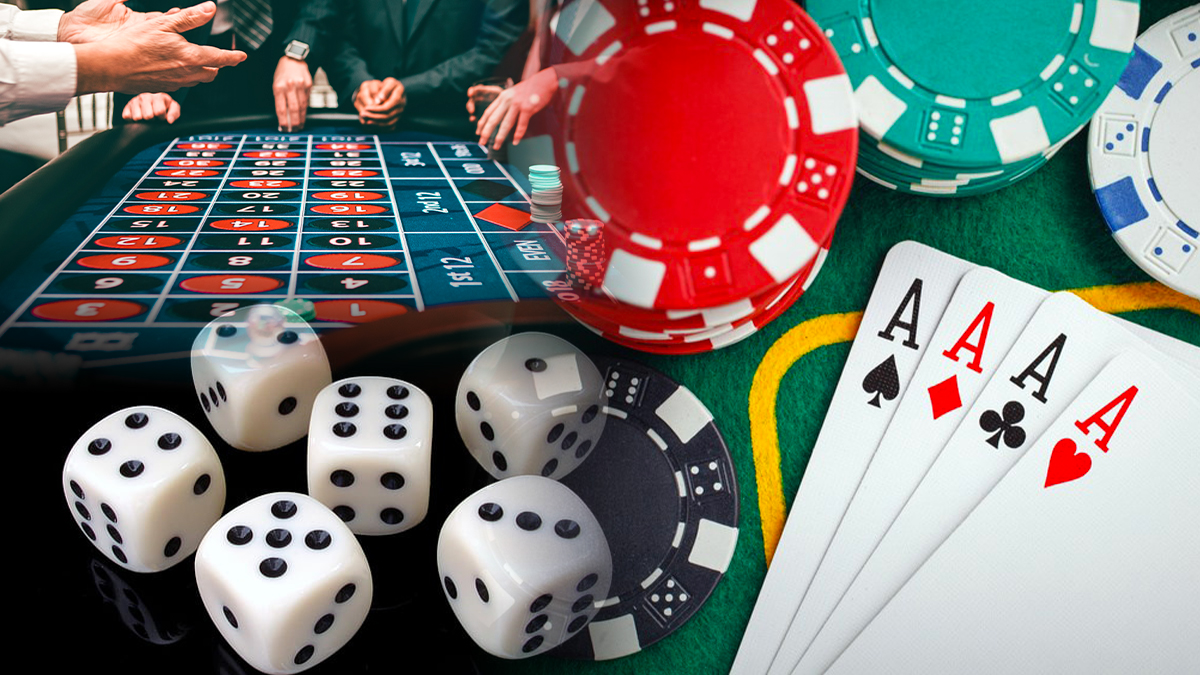
Casino games have enthralled players for decades, luring them into a realm of excitement, chance, and prosperity. From the blinking lights of gambling machines to the strategic action of poker games, these games offer a special blend of fun and hazard. However, beneath the shiny exterior of this sparkle and glamour lies a complex interplay of math that shapes every conclusion and action made within the gambling establishment.
Comprehending this relationship between casino games and mathematics not just boosts the gambling experience but can also help participants make informed choices. Whether you are a occasional gambler or a avid fan, recognizing the math concepts at play can offer insightful understandings into likelihood, ratios, and approaches, ultimately affecting how one deals with these games of chance.
Mathematical Likelihood in Gambling
In the sphere of gambling activities, statistical likelihood plays a vital role in determining results and informing gambler choices. Every activity has a unique set of regulations and a particular probability framework that influences its mechanics. For instance, in activities like roulette, players must understand the odds of choosing a certain digit or color. The probability of certain occurrences occurring can be calculated, and this knowledge can substantially influence betting strategies.
Gambers also need to be informed of the casino edge, which is the statistical advantage that gambling establishments hold over gamblers in the long term. This advantage differs across different activities. In 21, skilled players can use strategies to minimize the house edge to as little as one percent, while in activities like slot machines, the house edge can be much higher. Understanding the house advantage allows gamblers to make educated decisions about which games to play and how much to wager.
Moreover, probability is crucial in the concept of danger versus reward in gambling. Every wager carries a particular danger level, and gamblers must assess the possible return against that danger. Games like poker require players to not only compute the chances of their own showing winning but also to evaluate the likelihoods of their opponents’ hands. bensu4d daftar By applying mathematical principles to their gameplay, gamblers can boost their odds of success and engage more effectively in the thrilling world of gambling activities.
Anticipated Value in Gambling Games
When discussing gambling activities, one of the fundamental concepts rooted in math is the anticipated value. This statistical metric assists gamblers understand the potential outcomes of their wagers over a period. In basic terms, expected worth (EV) determines the mean amount a gambler can anticipate to gain or suffer per wager if they were to play the game repeatedly. Each activity has its unique EV, influenced by the probabilities and the house edge, which signifies the advantage that the gambling establishment holds.
For instance, think of a activity like roulette. The expected worth can be calculated based on the particular bet made. If a player bets on a single number, the payout is 35 to 1, but the true odds of winning that bet are 1 in 37 (in European roulette). This results in a detrimental expected value, showing that, on the whole, gamblers will lose money over time when playing this kind of bet. Understanding this idea allows players to make more educated choices about which activities and wagers may be more favorable.
Additionally, the investigation of expected worth can lead to better bankroll management. Gamblers who comprehend the math behind their games are often able to set practical goals. By recognizing their possible losses and profits, they can adjust their gambling strategies appropriately, which may enhance their total gambling experience. As a result, anticipated worth serves as a crucial tool for both beginner and seasoned players to steer through the frequently volatile nature of casino activities.
Approaches and Chances: The Arithmetic Behind Success
In casino games, grasping the chances is crucial for gamblers seeking to boost their opportunities of success. Each game has its own unique set of chances that determine successful performances, and these statistics are often found in the rules of the game regulations or reward charts. For example, in games like blackjack, players can improve their odds through tactics such as counting cards, which relies on arithmetic concepts to gain an advantage over the establishment. By educating themselves with the probabilities, participants can make more knowledgeable choices on when to wager and when to quit.
Additionally, the principle of expected outcome plays a significant function in gaming tactics. Expected value assesses the average outcome of a stake over time, allowing gamblers to judge whether a certain stake is valuable taking. For instance, fruit machines have a fixed payback percentage, which can show the expected return a player can look for on their wagers. By choosing activities with greater expected values, players can lessen the casino edge, enhancing their future winnings in the over time.
Finally, successful participants often employ a mix of chance and calculative tactics to enhance their gaming experience. While luck can’t be controlled, managing a betting strategy based on calculative ideas can lead to more positive results. By utilizing techniques such as budgeting and choosing games, participants can apply math to maneuver through the volatile nature of casino games, making the most of their efforts and money at the tables.